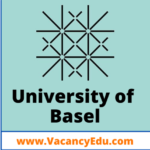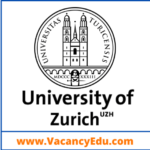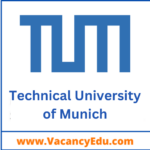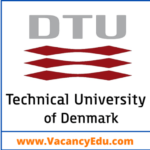University of Liverpool, Liverpool, England invites online Application for number of Fully Funded PhD Degree at various Departments. We are providing a list of Fully Funded PhD Programs available at University of Liverpool, Liverpool, England.
Eligible candidate may Apply as soon as possible.
(01) PhD Degree – Fully Funded
PhD position summary/title: A Reliable and Reconfigurable Robot Learning Framework for Accelerating Materials Discovery (R3L4AMD)
The future of chemical discovery, for example using genAI to identify novel molecules and materials with tailored functions, will rely on the data generated from physical experiments. Current robotic and automation approaches are not up to this challenge, lacking generalisation and scalability. Today, it takes years to build robotic workflows [1, 2, 3]; the main bottleneck is the manual system design, production, testing, adaptation and iteration required to attain safe, reliable performance. In this project, we will rethink how ‘robotic chemists’ are deployed using ‘A Reliable and Reconfigurable Robot Learning Framework for Accelerating Materials Discovery’ (R3L4AMD). We will accelerate the design automated workflows by transitioning from manual, task-specific robot programming to a simulation-to-reality paradigm with embedded formal methods that rigorously specify experimental goals and safety constraints. We will develop ‘robotic chemists’ using a physics-based robot chemistry simulation framework, which will automate the production of robot policies with provable performance and safety guarantees. We will deploy and validate this approach on a real robot setup in an autonomous materials discovery lab.
Deadline : 17 February 2025
(02) PhD Degree – Fully Funded
PhD position summary/title: Advancing disease progression prediction by AI with multimodality data
The core of this research focuses on creating spatial-temporal AI models to handle historical multimodal data, enabling better disease monitoring, treatment planning, and management. The project will address two critical challenges:
1. Using Historical Data for Disease Progression Tracking:
Building upon existing AI diagnostic systems, which mainly classify the presence of a disease, this research will extend capabilities to predict disease development over time using historical patient data.
2. Multimodal Data Integration for Enhanced Decision-Making:
Beyond imaging data, this project will incorporate multimodal information such as diagnostic reports and patient medical histories. By integrating clinical knowledge, the models aim to deliver comprehensive, accurate, and interpretable predictions to support informed decision-making.
Deadline : 13 January 2025
View All Fully Funded PhD Positions Click Here
(03) PhD Degree – Fully Funded
PhD position summary/title: Advancing Plasma-Facing Materials: A Data-Driven Approach to Tungsten Alloy Design for Fusion Reactors (Materials Strand Project)
This project aims to deliver a predictive model that identifies tungsten alloys with optimal properties for use as plasma-facing materials. The findings are expected to highlight specific alloying elements and compositions that enhance resilience to thermal stress, neutron flux, and irradiation effects. The resulting framework will provide valuable insights for designing advanced PFMs, supporting the broader goal of developing safe, efficient, and economically viable fusion energy systems.
Deadline : 31 January 2025
(04) PhD Degree – Fully Funded
PhD position summary/title: Automated Approaches for Efficient, Scalable, and Sustainable Synthesis of Material Precursors
Organic ligands are the fundamental building blocks for multiple classes of materials, e.g., metal-organic frameworks, COFs, and molecular solids, influencing structure, properties, and providing functional handles for specific applications. However, they also pose challenges: for example, metal-organic frameworks (MOFs) hold significant potential for multiple energy related technologies such as CO2 capture and H2 storage, but the ligand component is often prohibitively expensive (~50% of the manufacturing costs). It is imperative to reduce these production costs to unlock affordable direct air capture (DAC) and sorbent-based CO2 capture systems.
Deadline : 17 February 2025
(05) PhD Degree – Fully Funded
PhD position summary/title: Automated solid state synthesis robotic workflow
The experimental discovery of new inorganic materials shows us how crystal structure and chemical composition control physical and chemical properties. It is therefore critical for our ability to design functional materials with the properties we will need for the next zero transition. The use of robotic methods can greatly accelerate the discovery of new materials and when combined with optimisation techniques can be run autonomously to identify new materials with properties of interest.
This project will develop and exemplify a robotic workflow to perform solid state chemistry reactions, consisting of an automated weighing and mixing stage, coupled with a high temperature furnace to perform the reactions. Automated powder diffraction will be integrated to identify new materials within the phase fields being explored. The student will work closely with colleagues in the group of Prof Andy Cooper who have pioneered the use of autonomous robotic chemical synthesis for functional materials discovery. The project builds on a high throughput synthetic workflows developed in the group using slurry (Chem. Sci. 15, 2640, 2024.) and solution based precursors.
Deadline : 31 August 2025
Polite Follow-Up Email to Professor : When and How You should Write
Click here to know “How to write a Postdoc Job Application or Email”
(06) PhD Degree – Fully Funded
PhD position summary/title: Computational Identification of Catalytic Covalent Organic Frameworks
Materials which have internal porosity, such as zeolites, are widely used as catalysts. By containing chemical reactions within the pores of the material these catalysts can be more selective and more active than catalysts in solution. Covalent organic frameworks (COFs) are a class of crystalline, permanently porous, two-dimensional or three-dimensional polymers with tuneable topology and functionality. COFs containing catalytically active sites should exhibit the enhanced selectivity of other catalytic systems in which the substrate is confined within a pore, but confinement effects of catalytic COFs are relatively unexplored to date.
In this project high-throughput computational modelling will be used to identify COFs in which the size, shape and surface chemistry of internal porosity will allow access of the catalytic substrate to the active site and drive selectivity by reducing the number of accessible conformations for the substrate, transition state and product. The project will focus on COFs functionalised with metal-complexes for metallophotoredox catalysis and chiral organocatalysts for asymmetric photoredox organocatalysis.
Deadline : 17 February 2025
(07) PhD Degree – Fully Funded
PhD position summary/title: Deciphering mechanisms of host-to-host transmission in pathogenesis of pneumococcal disease
In this project you will seek to address this knowledge gap by starting an exciting PhD research project in the Bacterial Pathogenesis and Immunity Group, to uncover the mechanisms controlling pneumococcal carriage and transmission. You will be trained in and use the latest in vitro and in vivo models of infection, FACS, proteomics and RNA-Seq transcriptomics to delineate the various processes involved. Your PhD will aim to understand how host to host transmission occurs and how we can develop novel strategies to stop it. You will also develop a clear understanding of how pneumococcal transmission and host immunity interact and how this affects the local and systemic host responses to pneumococcal infection.
Deadline : 26 January 2025
(08) PhD Degree – Fully Funded
PhD position summary/title: Development of integration bridges between the clinic and the laboratory
The Liverpool Experimental Cancer Medicine Centre (ECMC) is part of a network funded by Cancer Research UK and the NIHR, facilitating early phase cancer trials. The data from bench research in our centre and elsewhere is stored via Laboratory Information Management Systems (LIMS), clinical information is stored separately during the trials to preserve patient anonymity and ensure blinding to outcomes when performing analyses. After the trials clinical data is archived but the samples remain in our post trials tissue bank for future research exploiting ever expanding technology and scientific discoveries.
Deadline : 31 March 2025
Click here to know “How to Write an Effective Cover Letter”
(09) PhD Degree – Fully Funded
PhD position summary/title: Development of quantitative imaging biomarkers for characterization of neural functional abnormalities in preclinical models of neurodevelopmental disorders.
This multi-institutional Dual PhD project between the University of Liverpool and the National Institute of Mental Health and Neurosciences (NIMHANS), Bengaluru, India. The project aims to develop quantitative magnetic resonance imaging and spectroscopic imaging biomarkers to assess abnormalities in neural function and metabolism in well-established preclinical models of neurological disorders. Specifically, the project will initially develop and validate longitudinal diffusion tensor tractography and MR spectroscopy in a Trappc9 knockout model of intellectual disability, which demonstrates microcephaly and learning disabilities (https://pubmed.ncbi.nlm.nih.gov/38331351/). Once established, these makers will be evaluated in other animal models including models of autism spectrum disorders and stress due to early maternal separation and isolation.
Deadline : 31 March 2025
(10) PhD Degree – Fully Funded
PhD position summary/title: Digital Discovery of Polymeric Materials
Computer aided design is used only rarely for polymeric materials, despite their importance across all technology sectors. Ultimately, this is because conventional simulations of polymers are tedious to set up, much slower than experimental synthesis and characterization, and therefore limited to the study of benchmark systems. This project will develop workflows for the accelerated and accurate simulations of thousands of polymers, opening the opportunity to use data analytics and machine learning to derive structure-property relations. It will become possible, for the first time, to establish a feedback loop between modelling and experiment for this class of materials, because the formulation of hypotheses through modelling will be faster than experiments. The methodology will be developed to be as general as possible, but a specific research problem will be tackled. We will consider polysulfide polymers produced by inverse vulcanization as an example of systems with defined but extremely large chemical space, and questions to answer. Models will be derived to describe the possible microscopic structure and will be used to interpret the data from experimental characterization, such as Raman spectroscopy. The project is suitable for students with background in Chemistry or Materials Science, with interest in the quantitative aspects of the disciplines and some previous experience with computational research or data analysis.
Deadline : 17 February 2025
Connect with Us for Latest Job updates
(11) PhD Degree – Fully Funded
PhD position summary/title: Digital Exploration and Structural Modelling of Hybrid Glass Formers
Glasses formed from hybrid materials, or hybrid glasses, have revolutionised materials science in recent years, with their distinctive structural and functional properties. This project aims to expand our understanding of these non-crystalline materials via two key objectives: the discovery of new hybrid glass formers and by modelling the atomic structures of known materials. Advanced computational methods, such as high-throughput simulations and machine learning, will be utilised to identify promising glass-forming candidates. Detailed atomic structural models of known hybrid glasses will also be developed, providing insights into their structure, bonding, and stability. These models will complement experimental data, explaining observed behaviours and guiding future research directions. Collaboration with experimentalists will ensure the integration of both computational and experimental efforts, thus reducing reliance on trial-and-error synthesis and streamlining materials discovery. While the focus of this project is primarily computational, there is scope to incorporate experimental elements for those interested in a broader approach.
Deadline : 17 February 2025
Polite Follow-Up Email to Professor : When and How You should Write
(12) PhD Degree – Fully Funded
PhD position summary/title: Digital Exploration of Novel Polymeric Materials for Structural Composites
Structural composites materials are used in a vast number of applications from aerospace to sport and recreation. Their polymeric constituent is in the majority of cases made by materials formed by epoxy-aromatic amine chemistry while there are many alternative chemistries, which are, in principle, capable of similar or better performances and can be more sustainable. The chemical space to explore is so vast and the current technologies so well developed that it is impossible to find viable alternatives in reasonable time with conventional methods. The goal of this project is to develop digital tools comprising AI methods, cheminformatics and, high-throughput virtual screening, to explore the non virtual assessment of novel polymeric materials in these applications. The project will give the opportunity of interacting with our industrial partner, a multinational research-intensive organization who will provide guidance and supervision through industry experts in AI/Cheminformatics, Polymer Chemistry and Materials Engineering/Composite Materials.
Deadline : 17 February 2025
(13) PhD Degree – Fully Funded
PhD position summary/title: Digital twin of heat pumps integrated with thermal energy storage
Electrification of heating supply will have massive impacts on the electricity grid. A highly electrified heating sector may cause large demand transient and peaks/troughs when many heat pumps are switched near-simultaneously, potentially destabilising the operation of networks. Heat supply also has complicated interdependence and interactions with other sectors such as industry and renewable power generation.
This project aims to develop models to quantify the impacts of heat electrification, to develop solutions through demand side management using heat storages, and to quantify the flexibility provided by heat storages and exploit it. Based on the obtained understanding, the project aims to establish a digital twin of an exemplar heating system that integrates heat pumps with thermal energy storage to explore and demonstrate how such flexible heating systems could manage heat demand in response to weather forecasts, and thus minimise their impact on the electricity grid collectively.
Deadline : 1 August 2025
(14) PhD Degree – Fully Funded
PhD position summary/title: Digitally-led Discovery of Solid Electrolyte Materials for Net Zero Applications
The discovery of new functional materials is essential to enable the transition to net zero. Given the size of chemical space, we need to harness digital tools to identify the best candidates for experimental synthesis, but computational prediction alone is insufficient – we need to experimentally realise and evaluate the materials. The student will use machine learning and crystal structure prediction to identify the compositions of candidate materials as new solid electrolytes for lithium and magnesium ion batteries, key technologies for the net zero transition. The student will then perform synthesis at these compositions in the laboratory and characterise the structures and properties of the materials discovered. Such a computational-experimental workflow was successfully used recently to identify a state-of-the-art lithium electrolyte with a unique structure [1], demonstrating the scope for the discovery of more transformative materials. The student will deploy existing tools and develop the combined computational-experimental workflow informed by the results generated in the project. The work will take place in a multidisciplinary team spanning computational chemistry, computer science, experimental materials synthesis, structural characterisation and property measurements.
Deadline : 17 February 2025
(15) PhD Degree – Fully Funded
PhD position summary/title: Discovery of new inorganic materials for net zero applications
This PhD project will tackle the synthesis in the laboratory of inorganic materials with unique structures that will expand our understanding of how atoms can be arranged in solids. The selection of experimental targets will be informed by artificial intelligence and computational assessment of candidates, working with a multidisciplinary team of researchers to maximise the rate of materials discovery. The resulting materials will be experimentally studied to assess their suitability in a range of applications, including targeting Li and Mg transport for advanced solid state battery materials. The student will thus both develop a strong materials synthesis, structural characterisation and measurement skillset, and the ability to work with colleagues across disciplines in a research team using state-of-the-art materials design methodology. The success of this approach is demonstrated in a range of papers (Science, 2024, 383, 739-745; J. Am. Chem. Soc., 2022, 144, 22178-22192; Science, 2021, 373, 1017-1022).
Deadline : 31 August 2025
(16) PhD Degree – Fully Funded
PhD position summary/title: Experimental Discovery of New Ionic Conducting Materials
This project tackles the discovery of new materials for solid state batteries that will have higher energy densities and superior safety to current technologies. It is based on the design and discovery of new inorganic solids with unprecedented structures that will allow new mechanisms for fast ion motion in solids. Materials that allow the rapid motion of ions are essential for the new energy technologies needed to meet the challenge of net zero, such as batteries, fuel cells and electrolysers for green hydrogen. We recently discovered a new lithium solid electrolyte that changes previous understanding of how to design fast ion transport in solid state materials (Science 383, 739, 2024), and expand upon this new structure type through performance optimisation via substitution (Angew. Chem. Int. Ed., 63, e202409372, 2024). This project will explore the enormous range of possibilities for the synthesis of new lithium- and magnesium-ion conducting materials based on this discovery. It will combine synthetic solid-state chemistry, advanced structural analysis, and measurement of the conductivity and electrochemical properties of the new materials, enabling the successful candidate to develop a diverse experimental skillset. The student will participate in the selection of synthetic targets as part of a multidisciplinary team that combine artificial intelligence and computational methods with chemical understanding to design new materials – the process that led to our recent discovery, which the student will have the opportunity to participate in and improve.
Deadline : 31 August 2025
(17) PhD Degree – Fully Funded
PhD position summary/title: Explaining Structure-property Relations in the Materials Space
The definition of `isostructural’ crystals remained incomplete in the IUCr dictionary until a crystal structure was defined as a rigid class of all crystal representations that can be matched by rigid motion [1]. The resulting continuous space of all periodic structures was parametrised by generically complete invariants [2] that distinguish all non-duplicate periodic materials in the Cambridge Structural Database and can be inverted to any generic 3D structure [3]. These invariants predicted a new material by structural analogy [4] and achieved state-of-the-art results in materials property prediction [5]. While past approaches often used black-box predictions, this project requires mathematical and computational skills to explain functional properties such as structural energy, gas adsorption or potential for photocatalysis in terms of the developed ultra-fast invariants [1-5]. Any property can be visualised as a mountainous landscape on geographic-style maps obtained by projecting the materials space to analytic invariant coordinates. Local optima on such landscapes will indicate the regions where target properties can be improved by modifying crystal structures in an optimal way.
Deadline : 17 February 2025
(18) PhD Degree – Fully Funded
PhD position summary/title: Exploring the therapeutic potential of calmodulin in the context of inherited cardiac arrhythmia
In this project, we will develop, characterise and validate hypersensitive CaM variants (CaM HS) with improved calcium binding properties and the ability to restore ion channel regulation, as a novel therapeutic avenue. With recent promising advances in protein replacement therapy, our findings will reveal the therapeutic potential of CaM in the context of inherited cardiac arrhythmia.
This is an exceptional opportunity for the successful applicant to receive comprehensive research training in techniques ranging from molecular cloning, protein biochemistry, structural biology and electrophysiology. The successful applicant will gain experience in dissemination of scientific knowledge by preparing articles for publication and through presenting findings at both national and international research conferences. Broader research training will also be provided through the University’s PGR training programme and doctoral training college.
Deadline : 31 January 2025
(19) PhD Degree – Fully Funded
PhD position summary/title: Guaranteed Structure Prediction with Machine Learning
In this project, we will expand our approach and make machine learning part of the optimisation routine. This includes simultaneous use of interatomic interaction and property prediction models. High-fidelity assessment of stability and properties with guarantees across the periodic table will provide a unique capability in material science. The student will contribute to trustworthy and verifiable AI in science and gain transferable skills in combining machine learning with optimisation. The project is multi-disciplinary, and we specifically welcome students with backgrounds in mathematics, physics, chemistry, engineering, and computer science.
Deadline : 17 February 2025
How to increase Brain Power – Secrets of Brain Unlocked
(20) PhD Degree – Fully Funded
PhD position summary/title: High-throughput exploration of multicomponent metal organic frameworks (MOFs)
New porous materials are important for advances in key technologies such as carbon dioxide sequestration and storage or catalysts for clean manufacturing. The assembly of multiple metal and organic linkers in the well-defined and complex crystal structures of multicomponent metal organic frameworks (MOFs) will deliver materials with enhanced properties. However, at present we do not have the experimental tools with the scale and speed to efficiently explore the vast chemical space available. This project will harness recent advances in robotics to efficiently explore the discovery of new multicomponent MOFs. The student will design and execute experiments on state-of-the-art robotic synthesis platforms, develop the required measurement approaches to extract and analyse data from the arrays of materials.
Deadline : 31 August 2025
(21) PhD Degree – Fully Funded
PhD position summary/title: High-throughput First-principle Simulations of Charge Transport in Organic Semiconductors
The first goal of the project is to make the simulations as realistic as possible based on the joint work [1] by both supervisors, in particular, by incorporating realistic phonon spectra, anharmonicity, and extrinsic disorder. We will also study spin dynamics and high-doping effects for spintronics and transistor applications. The second goal is to automatically search for high-mobility, technologically promising compounds within databases of organic molecular crystals, for example, the Cambridge Structural Database. The third goal is to combine numerics and theory to advance understanding of charge transport by dynamical phonon disorder in organic semiconductors and perovskites.
Deadline : 17 February 2025
(22) PhD Degree – Fully Funded
PhD position summary/title: Instrumentation studies for AWAKE Run 2c
AWAKE is the world’s first proton-driven plasma wakefield acceleration experiment. It utilizes 400 GeV proton bunches from the CERN SPS to drive plasma wakefields with an amplitude of ~ GV/m (which are orders of magnitude higher than conventional accelerators), which then accelerate externally injected 10-20 MeV electrons up to several GeVs in a 10 m long plasma.
The current AWAKE scientific program, called Run 2b, has produced several high impact results in recent years, including successful acceleration of the electron beam up to 2 GeV in a single stage of acceleration, demonstrated stable and reproducible seeded self-modulation (SSM) for a long proton bunch, and demonstrated the application of scalable plasma sources.
Run 2c has now been confirmed, which will use a second plasma channel and electron source to reach higher energies whilst maintaining and monitoring the beam quality for applications. This work will pave the way for this novel acceleration technology to drive compact machines towards the energy frontier.
Deadline : 19 December 2026
(23) PhD Degree – Fully Funded
PhD position summary/title: Investigating the cognitive ecology of the European nightjar
The student will have access to several years’ GPS-tracking data (2018-2023) from several heathland sites in the Poole basin (Dorset), but the main project will be to work with an industrial partner, Lotek, to set up and use Automated Radio Direction Finding (ARDF) systems across the heathland sites in the area. As well as setting up base stations, this will also involve catching nightjars and fitting them with VHF transmitters. By using ARDF, we can record at very high temporal resolution (every ~2 secs) the location of nightjars carrying these tags. The system is ideal for observing how nightjars develop their routes across the landscape (e.g. whether spontaneous short-cuts are used – a signature of sophisticated spatial cognition). The project will also involve working with an end-use stakeholder, WH White (who co-fund the project), to inform sustainable planning.
Deadline : 1 February 2025
(24) PhD Degree – Fully Funded
PhD position summary/title: Investigation of Novel Accessory Proteins in the Replication of Infectious Bronchitis Virus
Coronaviruses encode several accessory proteins that have been proposed to counteract antiviral host responses in vivo. Infectious Bronchitis Virus (IBV) is a Gammacoronavirus causing Infectious Bronchitis, an acute highly contagious economically important disease of chickens. IBV is related to other important coronaviruses such as SARS-CoV-2 or Middle East Respiratory Syndrome (MERS) coronavirus that infect humans. While previous research has shown that IBV genes 3 and 5 encode four accessory proteins, namely 3a, 3b, 5a and 5b; work in the Coronavirus group has identified two additional accessory genes, 4b and 7, produced via novel non-canonical mechanisms. This results in the production of three yet uncharacterised viral proteins denoted 4b and 4c and 7. The impact of these proteins during IBV replication is currently not known, however, our preliminary data suggests they have a role during in vivo infection with deletion impacting pathogenicity and that 4b could regulate translation, stress and/or mitochondrial function.
In a collaboration between the Coronavirus, Coronavirus Cellular Biology and Viral Stress Responses groups at The Pirbright Institute and groups at the University of Liverpool, this PhD project aims to investigate the role of these novel accessory proteins in IBV replication, and impact on antiviral host defences and pathogenicity. The project will use Mass spectrometry to identify host interaction partners hijacked or subverted by these proteins. Further assays targeting interferon induction and signalling, mitochondrial function, stress signalling, translation and autophagy will interrogate the potential roles of the proteins/interactions. Using reverse genetics and virology techniques such as growth kinetics, the role of the proteins in the replication of IBV in vitro, in ovo, ex vivo as well as in the replication and pathogenicity of IBV in vivo will be investigated.
Deadline : 17 February 2025
(25) PhD Degree – Fully Funded
PhD position summary/title: LYONS-JONES Scholarship PhD programme within the Institute of Systems, Integrative and Molecular Biology
We welcome applications from candidates that self-identify as coming from underrepresented background for the LYONS-JONES SCHOLARSHIP PhD programme within the Institute of Systems, Integrative and Molecular Biology at the University of Liverpool. As part of our commitment to creating a more diverse and inclusive environment within our Institute, we have established the LYONS-JONES SCHOLARSHIP scheme to support candidates with outstanding potential, from diverse backgrounds.
Deadline : 31 January 2025
(26) PhD Degree – Fully Funded
PhD position summary/title: Machine Learning for Material Performance Predictions Across Climates
Ultimately, the true value of materials is defined by their real-world usage. Longevity and performance retention over time are often the main considerations. Rigorous laboratory testing is typically paired with extensive real-world evaluation to ensure a comprehensive assessment of material performance. However, this lengthy and demanding process slows down research and development efforts as well as the real-world deployment of new technologies. Emerging machine learning approaches provide opportunities to greatly accelerate this process.
Beckers Group is the number one supplier of coil coatings and a leading supplier of industrial paints worldwide. To deliver reliable recommendations and warranties to clients, Beckers has conducted decade-long studies on formulation weathering at testing sites worldwide, encompassing diverse climatic conditions. Previously [1], we demonstrated how this data can be combined with climatic information from satellite measurements to enable global predictions of coating performance at fine scales. In this project, we will leverage laboratory evaluation data and chemical similarity between formulations to deliver predictions earlier in the design process and drive material discovery. This project is part of the growing ecosystem at the intersection of material science and climate AI.
Deadline : 17 February 2025
(27) PhD Degree – Fully Funded
PhD position summary/title: Machine learning methods for modelling and optimising CO2 heat pumps
Heat represents nearly half of the world’s energy consumption and contributes to almost 40% of energy-related greenhouse gas emissions. Meeting the goal of net-zero emissions by 2050 requires the installation of approximately 600 million heat pumps annually by 2030. Heat pumps using CO2 as refrigerant will have a pivotal role to play in heat decarbonisation.
The optimization of operational strategies for CO2 heat pumps through advanced computational methodologies represents a pioneering endeavour in the realm of sustainable heating and cooling technologies. CO2 heat pumps, utilizing carbon dioxide as a refrigerant, offer significant advantages in terms of environmental impact and energy efficiency compared to traditional systems. However, unlocking their full potential requires precise control and optimization of operational parameters. By leveraging advanced computational methodologies this project aims to enhance the operational strategies of CO2 heat pumps across a broader operating range for greener and more sustainable heating/cooling applications.
Deadline : 1 August 2025
(28) PhD Degree – Fully Funded
PhD position summary/title: Microbial Induced Electrochemistry at the Local Site and Single Cell Level
Microbial Induced Corrosion (MIC) is a serious economic problem with an estimate worldwide cost of $113 Bn every year. MIC impacts a very wide range of industries, from power plants to construction, and even the health of humans with implants or protheses. While modern research has realised and demonstrated the relevance of microbial corrosion, the processes involved are still poorly understood, and mitigating strategies are still inadequate.
This is not surprising given the variety of electrochemical processes at work in biofilms.
This PhD project brings together expertise in nanoscale surface science and local scale electrochemistry, cell-surface interaction probes, microbiology and imaging across physical and biological sciences to study the electrochemical process that occurs both at the local site and single cell level and at the population level.
Deadline : 15 June 2025
(29) PhD Degree – Fully Funded
PhD position summary/title: Multiphysics data-driven validation framework for component qualification in fusion
In a nuclear fusion reactor Plasma Facing Components (PFCs) are subjected to extreme environmental conditions which induce complex loads. To build confidence in the integrity of PFCs and consequently a robust operation of a reactor, we must test individual components under the complex multi-physics loads representative of the operating conditions. It is expensive, time consuming and difficult to physically test the components under the extreme environmental conditions, making it desirable to enable the use of virtual tests, e.g. engineering simulations, to qualify these components. However, simulations require validation against experimental data over domains that can be physically tested to ensure that they are credible and can be used for risk informed decision making. In this project the student will aim to integrate physical and virtual testing to develop a multi-physics data-driven validation framework, which synthesises data from multiple sensors and demonstrates credibility of an engineering simulation. This project will focus on component qualification in fusion; however, the novel framework will have the potential to extended to other engineering applications based on multi-physics systems.
Deadline : 31 January 2025
(30) PhD Degree – Fully Funded
PhD position summary/title: Multiplex imaging to uncover key biomarkers and whole brain neuron circuit interaction during stroke recovery.
We aim to comprehensively depict the activity patterns of the mouse brain in recovering from ischemic stroke through the development of a series of new technologies from various teams. By establishing this analyzing how the brain’s neural function is reconstructed during physical rehabilitation or chemical therapy, the project aims to provide new therapeutic opportunities for human stroke treatment in the future.
Through the analysis of multiplex biomarker chips and whole-brain multicolor microscopy imaging in a mouse stroke model, we can gain in-depth insights into the pathological mechanisms of global neuronal damage caused by stroke and the interactive effects among different neurons during the recovery process of brain tissue damage. This approach allows the assessment of various recovery strategies, including physical therapy, drug treatment, and combined therapies, on post-stroke recovery outcomes and their impact on the neural circuits in the brain. These research findings can guide clinical practice in determining the most effective recovery methods. By studying biomarkers and neuroplasticity and recovery mechanisms in mice after a stroke, we can gain a deeper understanding of how the brain undergoes restructuring and repair. This knowledge is crucial for developing therapeutic approaches that promote neural regeneration and recovery.
Deadline : 17 January 2025
About The University of Liverpool, Liverpool, England –Official Website
The University of Liverpool (abbreviated UOL; locally known as The Uni of) is a public research university in Liverpool, England. Founded as a college in 1881, it gained its Royal Charter in 1903 with the ability to award degrees, and is also known to be one of the six ‘red brick’ civic universities, the first to be referred to as The Original Red Brick. It comprises three faculties organised into 35 departments and schools. It is a founding member of the Russell Group, the N8 Group for research collaboration and the university management school is triple crown accredited.
Ten Nobel Prize winners are amongst its alumni and past faculty and the university offers more than 230 first degree courses across 103 subjects. Its alumni include the CEOs of GlobalFoundries, ARM Holdings, Tesco, Motorola and The Coca-Cola Company. It was the UK’s first university to establish departments in oceanography, civic design, architecture, and biochemistry (at the Johnston Laboratories). In 2006 the university became the first in the UK to establish an independent university in China, Xi’an Jiaotong-Liverpool University, making it the world’s first Sino-British university. For 2021–22, Liverpool had a turnover of £612.6 million, including £113.6 million from research grants and contracts. It has the seventh-largest endowment of any university in England. Graduates of the university are styled with the post-nominal letters Lpool, to indicate the institution.
Disclaimer: We try to ensure that the information we post on VacancyEdu.com is accurate. However, despite our best efforts, some of the content may contain errors. You can trust us, but please conduct your own checks too.
Related Posts
- 07 PhD Positions-Fully Funded at University of Basel, Switzerland

- 11 PhD Positions-Fully Funded at University of Southern Denmark, Denmark

- 18 PhD Positions-Fully Funded at Inria, France

- 10 PhD Positions-Fully Funded at University of Stavanger, Norway

- PhD Positions (16)-Fully Funded at University of Zurich, Switzerland

- PhD Positions (08)-Fully Funded at University of Bergen, Bergen, Norway

- PhD Positions (05)-Fully Funded at Wageningen University & Research, Netherlands

- PhD Positions (17)-Fully Funded at Technical University of Munich, Germany

- PhD Positions (22)-Fully Funded at Technical University of Denmark (DTU), Denmark











